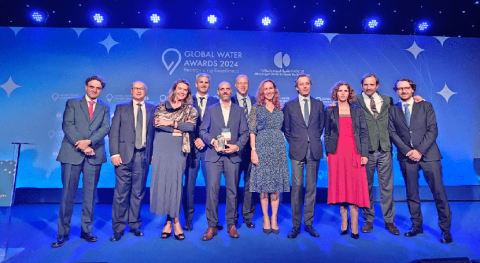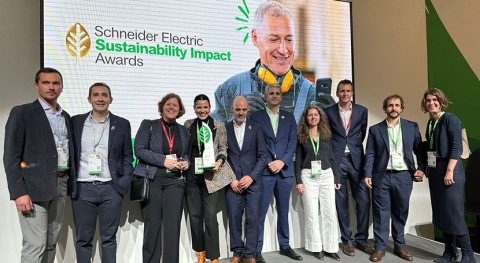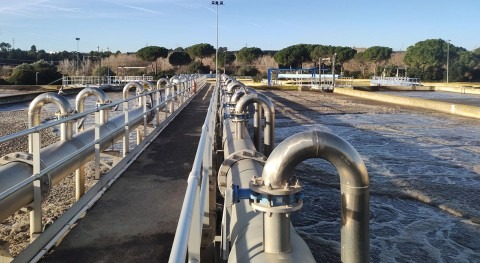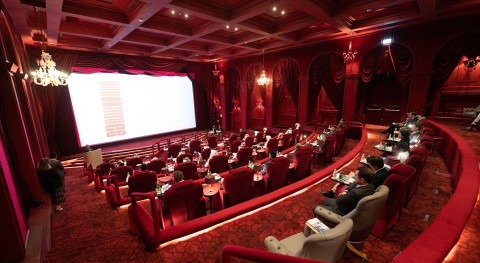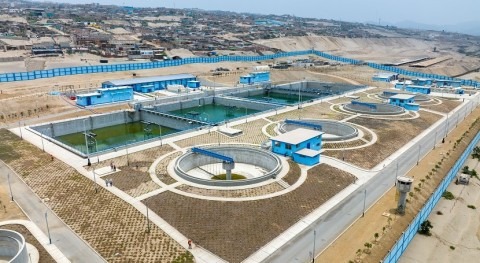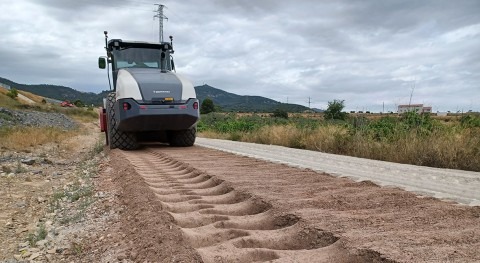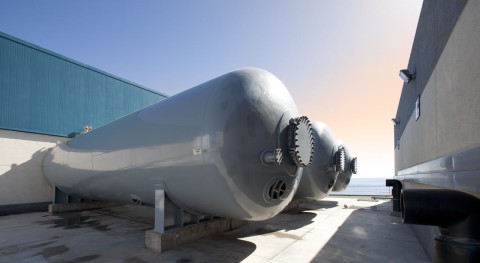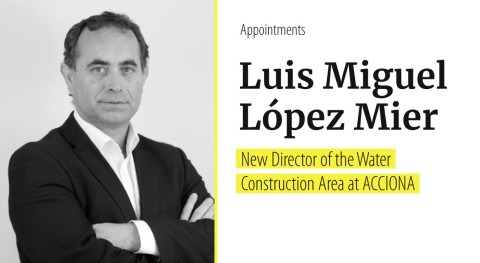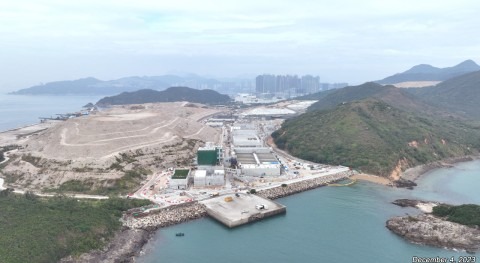We continue our 'Women and Water' interview series with Lorena Cagigas, Responsible for the Department of Engineering-Implementation at Acciona Agua. Ms Cagigas has an outstanding career in the sector and a significant international profile.
Question: First, we would like to know in detail about your career path up to your current position.
Answer: I studied chemical engineering, focusing first on the automotive sector, and secondly on the environment. As a result of my first focus, I started to study German, and after I finished my degree I looked for work in Germany. Bear in mind that when I finished university, consulting firms were experiencing a boom. In fact, companies such as Accenture, Arthur Andersen, etc., would come directly to our university to recruit graduates. I was not attracted to that sector, so I looked for work related to the automotive industry, a sector where I had done an internship. A few months after arriving to Nuremberg (Germany), I had the opportunity of working for a water sector company: Invent Umwelt & Verfahrenstechnik, providers of mixing/aeration equipment and SBR systems for waste water treatment. A couple of years later I joined the company ITT Sanitaire, where, after a training period in England, I became technical-sales representative for ABJ systems (SBR ICEAS) in Spain and Portugal. In 2007 I joined Acciona Agua, initially as an engineer working on tenders, but one year later we were awarded a tender in Adelaide (Australia) and I moved on from the proposal phase to the implementation phase as the person responsible for engineering. The same thing happened two years later with the project at Fujairah (UAE), and since July 2013 I am Responsible for the Department of Engineering-Implementation.
There are still people in my generation (and later generations) who say 'my husband helps me a lot at home and with the kids'; so is it your responsibility and he has to help you?
Q: In the water sector we continue to see an important gender gap. Why do you think this is?
A: Many of the reasons for it have been pointed out in previous interviews. When I was studying chemical engineering, we were 40 students in our degree programme, and about 75% were women. However, out of 170 students in the industrial engineering programme, which had some common courses with ours, women accounted for less than 25% of the students. Therefore, some years have to pass before the women from later generations (more numerous) shift the balance the other way. However, if we go now to a university, the situation we encounter is completely different.
Q: Does your entity have any programmes and/or tools to foster equality, aimed to bridge the gender gap?
A: As some female colleagues working at Acciona Agua have mentioned in earlier interviews, the company has a Corporate Equality Plan.
Q: What other measures (aside from those contemplated by companies) would be, in your view, effective to reach parity in the water sector?
A: Reaching parity in any sector (in the water sector, but also for example in the cleaning sector) is entirely linked to education. There are still people in my generation (and later generations) who say 'my husband helps me a lot at home and with the kids'; so is it your responsibility and he has to help you? When we ourselves leave that burden behind and are able to educate our children the same, regardless of their gender, we will have taken a huge leap.
Another example shows the way we have been educated: in the construction sector, given the large number of international projects, people are frequently posted abroad and often one of the spouses has to abandon his/her job/career for the sake of the other. Well, if the woman quits her job and works raising the kids, it is more or less accepted. However, if it is the man who does not have a job, he is criticised by men and women alike.
When I was studying chemical engineering, we were 40 students in our degree programme, and about 75% were women. However, out of 170 students in the industrial engineering programme, which had some common courses with ours, women accounted for less than 25% of the students.
Q: Now let us talk about your experience, what difficulties have you faced in your career because you are a woman?
A: I would not say I have faced difficulties. I have faced, however, many odd situations over the years, due to a combination of being a woman and being young: meetings with senior professionals (on average, over 50 years old) where 95% of the attendees were men. Initially, they almost ignore you, and as you show your knowledge, you gain their respect.
Q: Are there any other pressing challenges that you think need to be addressed in the sector?
A: Aside from equality, I believe one of the greatest challenges of our time (which applies to other sectors too) is adapting our working hours to make them similar to those in the rest of Europe. We are very used to extend the time we spend in the office (sometimes without a real reason for it, just out of habit) and we should be more efficient during our working hours, and not let work interfere with our spare time. Also, we still have a long way to go with regards to telecommuting and a flexible working schedule. But here also education has a big influence, and the Spanish picaresque does not help at all.
Q: Conversely, what do you think are the main achievements in the sector?
A: Despite all of the above, if we compare Spain with other countries (even European ones) we should say that there are many women working in this sector and they are reaching senior management positions. It is our job to continue along this path.





